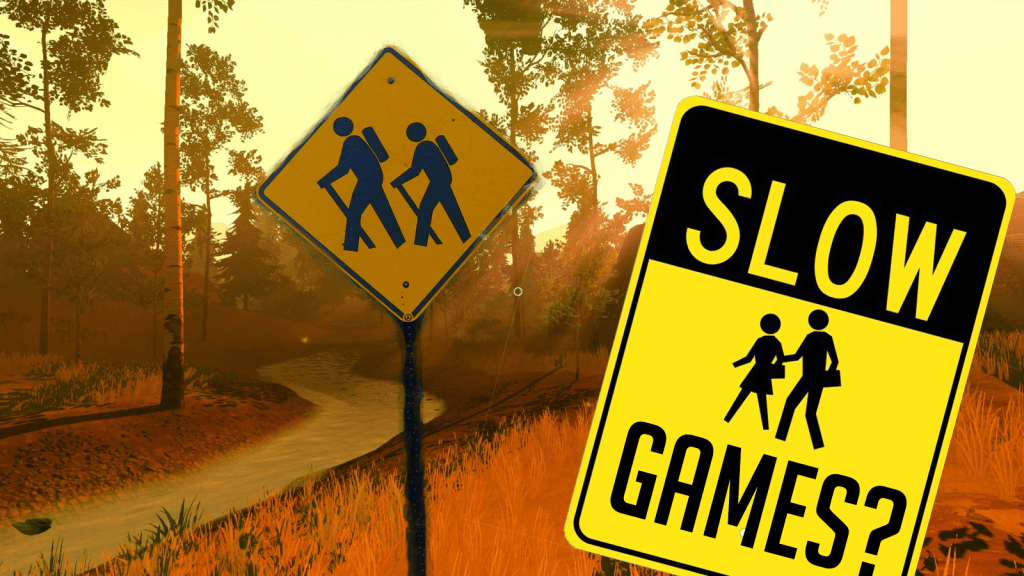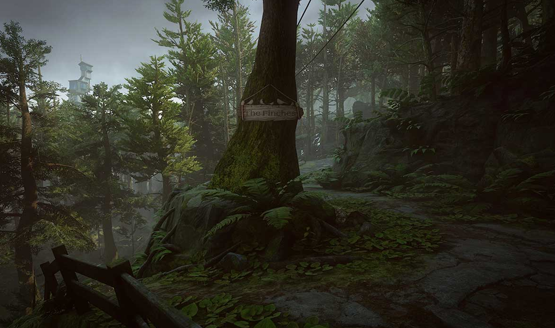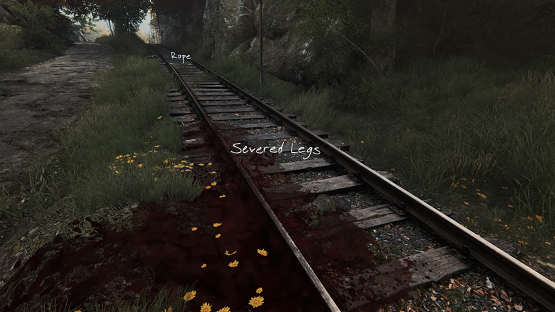Days like today are tough on Daily Reaction. Vestiges of news are few and far between, and there isn’t much to “react” to (Ehrmagerd! DLC in Days Gone…!). But then I caught wind of an ongoing conversation on Twitter, a resurgence of a long held complaint by many gamers that “walking simulators” are inherently bad games. There’s this flawed notion that a game has to have action or puzzles are something to “do” in order to be considered good. So what is it about walking simulators that have so many gamers on edge, and how can we change our perspective? First we need to look at what a walking simulator even is.
What is a Walking Simulator?
On the surface, a walking simulator is another genre of game, along the lines of first-person shooter or puzzle game or open-world action adventure. But the curious thing is how the term “walking simulator” tends to get tossed around as an insult to a game’s experience. Traditionally, people have used walking simulator to describe games devoid of much interaction other than walking for place to place and limited objects that advance the story in some way. Truth is that there’s no hard line on what you might call a walking simulator versus where that same game crosses the line into a different genre, like puzzle game. Some games are easy enough to classify. We’re not about to call The Division 2 a walking simulator, and I highly doubt anyone would give Devil May Cry 5 that designation, but what about games like The Witness or Obduction? Was the classic puzzle game Myst nothing but a walking simulator?
One of my absolute favorite games of 2017 was What Remains of Edith Finch, a game that would probably easily be identified by many as a walking simulator, yet reducing it to those barest bones feel disingenuous to what is a phenomenally engaging interactive narrative, and one that actually brought me to tears. Sure, it might not have the most difficult puzzles or sections that require immense amounts of skill to complete, but why should a game so focused on story place barriers on allowing the player to explore that narrative? It’s actually something that games requiring more skill often struggle with, finding that perfect balance between telling the story and rewarding a skill gap.
Consider this paragraph from my Vanishing of Ethan Carter review:
That’s the thing about The Vanishing of Ethan Carter though. It’s not about that portion of the gameplay. It’s not about whether the puzzles or mysteries are hard or easy to solve. It’s not about how long it takes to “beat it.” There’s no real punishment for failing to solve a case or solving a puzzle incorrectly. The Vanishing of Ethan Carter is about mystery. It’s about discovery. It’s about those “aha!” moments when something about the story or world clicks into place. And it’s about eliciting a certain feeling from players as they make their way through a serene, quiet mountain town that is full of bodies and a dark presence. It has all the air of a twisted Stephen King-eque story and the conflicting emotions between the beauty of the world and the grisly scenarios taking place create a fascinating sense of immersion.
It’s not about the gameplay systems, but about the mystery. Other games serve to test the player’s skills and punish them for failure. This particular game did not set out to do that, and is not made any “worse” by the fact that it focuses on unraveling the mystery.
In those games described as walking simulators, the gameplay is often in players uncovering that narrative for themselves. It’s immersive in a way that other storytelling mediums simply aren’t. Even the simple act of pushing a thumbstick forward can engage the players far more than the act of reading a book or a watching a movie, both linear and somewhat removed experiences comparatively. Now I’m not knocking movies or books, but it illustrates a point for why simpler narrative-driven games have value and place within the industry.
But again, where does that line get drawn? If something like Gone Home or The Vanishing of Ethan Carter is a walking simulator, then by that same definition, wouldn’t Journey be one as well? What makes one an acclaimed and amazing title and the other not worth your time? How are Telltale’s (RIP) narrative adventures any different? Calling something a “walking simulator” reduces a game to its simplest components, blatantly ignoring those broader elements of exploration, discovery, and unfolding the narrative. You might not like a game because of its narrative content, but then blaming the fact that it is a slower paced and more accessible game isn’t fair to the storytelling genre.
Wouldn’t it Have Been Better as a Movie?
I hear this argument a lot. Wouldn’t [insert your typical “walking simulator” game here] have been better as a movie? Firewatch received many of these criticisms from “gamers” who apparently wanted it to feature more SMGs and magical abilities, or something. So instead they just say that it shouldn’t exist at all. Firewatch might not be your particular cup of joe, but you can play whatever else is. The beauty of video games is that both can coexist beautifully, and that we have such a wide variety of choices for what we and others want to play.
There’s a simple psychological trigger when we’re asked to be a part of something. Watching Edith Finch’s story unfold as a Netflix series might be amazing (and now I really want that), but there’s something about being able to take that story at your own pace, to be involved, to have control and yet not be able to control the most heart-wrenching of outcomes. There’s added storytelling within the world that may pass by in a fleeting scene on video, but that we can explore to our heart’s content in a video games. Action and interactivity should never be a complete replacement for mystery and storytelling, something that many games described as walking simulators do very well.
A more apt name might have very well been narrative simulator, as it more fully encompasses the pieces that make up your usual “walking simulator,” but calling something a walking simulator was never meant to be a genre identifier. It’s most often handed down as an insult to the game, insinuating that it has no value as a video game due to its limited interactivity and low skill ceiling. I’m not saying that all walking sims are good games, but it’s kind of like trying to judge a movie simply by tossing a reductive genre label on it. A genuinely great experience may get swept up in that negative labeling, and its misleading nature is like to misinform potential players of what the game is all about.
In the evening when I boot up my PS4, I’m not always in the mood for the same thing. Sometimes it’s more grinding in Destiny 2, while other times I want to swing around New York as Spider-Man. Still there are times when I want a somewhat slower experience—to experience a riveting narrative at my own pace. I don’t always want lots of action, precision aiming, random loot drops, or a big crowd of enemies to overcome, much as I enjoy all of those things. Surprising, I know, to think that I would ever put down Destiny for anything, but here we are.
At this point, “walking simulator” has taken up residence in gamer vocabulary, for better or worse. I lean towards worse, because abridged labeling tends to be a tactic to abase things that people don’t like. But let’s not forget that the worst thing to happen to video games was for them to have been called “games” in the first place. It ultimately reduces any experience that wants to go beyond that label and do something different.
Daily Reaction reacts daily to news from the video game industry. Have suggestions for the column or subjects you’d like us to react to? Let me know in the comments below and be sure to check out previous Daily Reactions for more dives beyond the headlines.










